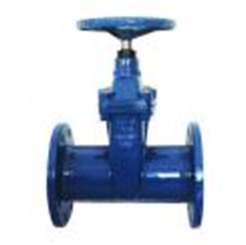Pro . 10, 2024 04:37 Back to list
Innovative Solutions for Industrial Gate Valve Applications and Performance Optimization
Industrial Gate Valves An In-Depth Overview
Industrial gate valves are essential components in various industrial applications, primarily used for controlling the flow of fluids and gases in pipelines. They are characterized by their simple design, robustness, and reliability, making them a popular choice in many sectors, including oil and gas, water treatment, power generation, and chemical processing. This article delves into the features, working principles, advantages, and applications of industrial gate valves.
Understanding Gate Valves
Gate valves operate by raising or lowering a gate (or wedge) within the valve body to control the flow of the medium. When fully open, the gate is lifted out of the flow path, allowing for minimal pressure drop and unrestricted flow. Conversely, when the valve is closed, the gate seals tightly against the seat, preventing any fluid or gas from passing through.
Gate valves are typically classified into two main types rising stem and non-rising stem valves. Rising stem gate valves have a stem that moves upward as the valve opens, allowing operators to visually confirm whether the valve is open or closed. Non-rising stem gate valves, on the other hand, do not provide this visual indication, as the stem remains stationary during operation.
Key Features
1. Design and Construction Industrial gate valves are designed to handle high pressures and temperatures, often made from durable materials such as carbon steel, stainless steel, or other alloys. Their construction must accommodate the specific requirements of the application, including resistance to corrosion and erosion.
2. Sealing Mechanism The sealing mechanism of gate valves is crucial. They typically employ wedge-shaped gates that can be made of either metal or resilient materials. The sealing surfaces must be precisely machined to ensure a tight fit and prevent leaks when the valve is closed.
3. Variability Gate valves are available in various sizes and pressure ratings, making them suitable for diverse applications. From small pipelines to large industrial systems, there is a gate valve tailored to meet specific requirements.
Advantages of Industrial Gate Valves
1. Minimal Pressure Drop When fully open, gate valves provide a clear path for fluid flow, resulting in minimal pressure loss. This feature is particularly advantageous in systems where maintaining pressure is critical.
industrial gate valve

2. Durability Built to withstand harsh industrial conditions, gate valves are designed for long service life, reducing the need for frequent maintenance or replacement.
3. Versatility Gate valves can handle a wide range of fluids, including water, oil, gas, and chemical substances, making them suitable for diverse industries.
4. Low Flow Resistance Because of their fully open position, gate valves maintain low flow resistance, improving the efficiency of the system.
Applications
Industrial gate valves find applications across various fields, including
1. Oil and Gas In the oil and gas industry, gate valves are utilized for their reliability in controlling flow in pipelines and refineries. They are essential for shut-off and isolation purposes.
2. Water Treatment Gate valves are commonly used in water treatment facilities to facilitate the flow of water through treatment processes and pipelines, ensuring efficient management of water resources.
3. Power Generation In power plants, gate valves are employed in steam lines, cooling water systems, and fuel supply systems, where reliable shut-off capabilities are paramount.
4. Chemical Processing The chemical industry uses gate valves to control the flow of various chemicals, providing robust, leak-proof isolation and ensuring operational safety.
Conclusion
Industrial gate valves play a critical role in the efficient operation of many industrial processes. Their straightforward design, high durability, and versatility make them a preferred choice for managing fluid and gas flow in various applications. Understanding the features and functions of gate valves can help industries make informed decisions, ensuring that they select the right valves for their specific needs. As technology advances, the design and materials used in manufacturing gate valves will continue to evolve, further enhancing their performance and reliability in demanding industrial environments.
Share
-
Advanced Technology in Wire and Cable FactoryNewsAug.19,2025
-
Applications of Ball Check Valve in Water Treatment PlantsNewsAug.19,2025
-
How Osy Gate Valve Ensures Leak - Tight SealingNewsAug.19,2025
-
Selection Criteria for Wafer Type Butterfly ValveNewsAug.19,2025
-
Threaded Ball Valve Pressure RatingsNewsAug.19,2025
-
Y Strainer PN16 Cost - Effectiveness AnalysisNewsAug.19,2025


